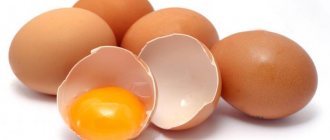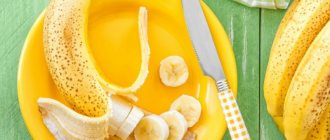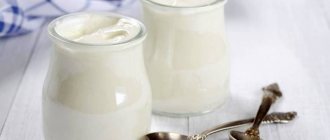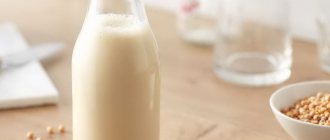The multifaceted benefits that freshly squeezed juices give us are no secret. As well as the fact that they are beneficial for the health of both young and elderly organisms. A person who regularly consumes such juices has fewer digestive problems, and his face radiates a healthy spirit. Thanks to such days, excess weight goes away by cleansing the body of toxins. Many experts say as one: a fasting day on freshly squeezed juices is one of the best diets.
- We recommend reading: fasting day on the water
CALCULATORS FOR THOSE WHO WANT TO LOSE WEIGHT
It is advisable to carry out fasting days a couple of times every 2 weeks, and take breaks between them. If there is a desire or need to improve your health, the course can be repeated. Well, now - details about the correct implementation of such “freshly squeezed” diets.
What is the difference between fresh juice and whole fruits and vegetables?
There is an opinion that our body better absorbs beneficial components from fruits and vegetables when we get them from juices.
But our digestive system is designed in such a way that it can easily process fiber, getting everything we need from it. Nagima Semchukova
certified nutritionist, member of RoSNDP
– Freshly squeezed fruit juices, like whole fruits, contain vitamins, minerals and phytonutrients. However, there is one very important difference: the pulp and peel of whole fruits are a source of dietary fiber (fiber), which is necessary for the health of our intestines. As a rule, freshly squeezed juices, especially if they are without pulp, lack this important component. In such juices we get rid of the peel, seeds and pith.
What is healthier – fruit or vegetable juices?
Both have a place in a balanced diet for a healthy person, since each vegetable or fruit contains certain nutrients, and if you don’t find a certain vitamin in a fruit, you can look for it in a vegetable. Diversity is the key to success. But again, the nutritionist clarifies, you should not replace whole fruits and vegetables with fruit and vegetable juices. Of the WHO recommended five servings of fruits and vegetables per day, at least half should come from whole fruits and vegetables.
Options
Juices are obtained from any vegetables and fruits. But not everyone is suitable for weight loss. Some are too high in calories, others in large quantities irritate the stomach and intestines. Let's talk about the most useful and effective ones.
1. Tomato
This is a classic fasting day. 100 g contains only 18 kcal. Of the many beneficial substances for weight loss, the following are important:
- dietary fiber, which cleanses the intestines of accumulated toxins;
- organic acids that suppress decay processes and normalize the functioning of the digestive system;
- iodine is a rather scarce microelement required for the functioning of the thyroid gland (normal regulation of all types of metabolism);
- zinc, which is also called a beauty mineral (healthy hair, strong nails, elastic skin).
Interesting! Overripe tomatoes contain large amounts of succinic acid. It is needed by mitochondria - the cellular “power plants”. Deficiency of this substance leads to aging. Regular use of succinic acid can prolong the life of each cell.
Recipe: to get 2 liters of drink, take 3 kg of ripe tomatoes and pass them through a juicer or meat grinder. No need to add salt. The menu can be supplemented with a slice of rye bread, a portion of rice, and boiled chicken breast.
How does juice absorption work in the body?
When we juice a fresh fruit or vegetable, we remove the fiber from it and get a liquid with vitamins and a very high concentration of sugar in one glass. Yes, although it is natural, it is sugar.
There is a common misconception that sugar from fruits (fructose) is healthier than regular sugar. In fact, sucrose (or the white sugar we are used to) consists of glucose and the same fructose. It is important to understand that consuming too much fructose is just as harmful to the body as consuming too much regular sugar, sometimes perhaps even more so. This is due to the peculiarities of fructose metabolism.
It should be noted that carbohydrates, namely glucose molecules, are the primary and most preferred substrate for energy in our body. So that we do not at one point be left without a source of energy, in order to always maintain a normal level of glucose in the blood, our body has a so-called carbohydrate depot - glycogen. If a person consumes more energy than he needs, and the body's carbohydrate depot is full, all the excess energy received will be stored as fat.
As for fructose, it is not used anywhere in the body in its natural form. Given that fructose can only be processed in the liver, the portion of fructose that is not converted to glucose for energy is immediately converted to fat. This leads to excessive accumulation of fat, including in the liver. For comparison: out of 120 kcal of glucose, only 1 kcal is stored as fat, and when consuming 120 kcal of fructose, 40 kcal is stored.
Read about added sugars HERE
.
A nutritionist spoke about the benefits of fasting days
Carrying out fasting days, which involve reducing food consumption by 500 kcal, allows you to reduce body weight and appetite, get rid of swelling, and also improve well-being and performance. Nutritionist Ekaterina Burlyaeva spoke about this on Wednesday, May 19.
They're crazy about fat: what diets do Russians most often search for on the Internet?
Not all weight loss methods work as advertised
“As a rule, body weight decreases. And the appetite decreases - the body is already accustomed to receiving less. Swelling decreases, performance increases, lightness is felt, and in general the person feels better,” the nutrition specialist said in a comment to the Healthy Eating portal.
According to her, fasting days also involve giving up a number of foods that increase the secretion of gastric juice. On such days, it is preferable to build a diet with a ratio of proteins, fats and carbohydrates as 1: 1: 3, respectively.
Calorie content for fasting days is determined individually: as a rule, 500 kcal is subtracted from the daily volume. On average, it is considered normal to consume about 1,500 calories for women and 2,000 for men.
According to the expert, fasting days are carried out on a regular basis, but depending on the conditions in which the person is. So, you can unload the stomach at home 1-2 times a month, while a similar procedure in the hospital is allowed 1-2 times a week.
However, the expert pointed out that it is undesirable to arrange fasting days too often, as this can adversely affect health.
Burlyaeva outlined three basic rules for fasting days: the first implies the absence of heavy physical activity in order to avoid a decrease in muscle mass. The second rule is to accompany a deficiency in food intake with the necessary amount of fluid, which, according to general recommendations, is 1.5–2 liters of clean water per day. Also, you should not start unloading if a person understands that he will not be able to complete it: for example, a meeting with friends is planned for the evening, which makes it more likely that the regime will be violated.
Earlier, on May 23, nutritionist Elena Kalen reported that avocado is an ideal product for improving the functioning of the gastrointestinal tract.
According to the specialist, despite the high calorie content of the fruit, it contains a large amount of fiber, vitamins and minerals, especially potassium. The beneficial properties of avocado also include strengthening the immune system, rejuvenation, weight loss and reducing the risk of developing arthritis.
How can you enrich juice?
When we drink vegetable or fruit juice, we don't get enough fiber, which promotes satiety, reduces the risk of heart disease, and lowers cholesterol levels. Additionally, freshly squeezed juices do not contain healthy fats that are essential for transporting vitamins within our bodies (such as vitamins A, D, E, and K, which are important for hormone production and bone and nervous system health). Even in smoothies, due to the heating of the blender blades, the useful mass of fiber is oxidized, so a number of useful substances are destroyed faster.
How can you rehabilitate juices, making them a complete source of useful components? Nutritionist Nagima Semchukova explains:
– If you need a quick but balanced meal, you can make a smoothie. To do this, you can mix in a blender:
- As a source of fiber, vitamins and minerals - any combination of fruits / berries / vegetables / herbs to your taste.
- As a source of fiber and slow carbohydrates - slow-cooked rolled oats / buckwheat / bean sprouts, etc.
- Sources of healthy fats include Greek yogurt/nuts/seeds/oils.
- Protein source: flax seeds / Greek yogurt / cottage cheese / peanut butter / protein powder / nuts, etc.
.
Important!
Drinking a smoothie does not replace the need to eat solid food throughout the day. In other words, don’t go to extremes and replace all meals with smoothies. Your teeth should work too.
Read about whether you can lose weight on a diet of juices and smoothies HERE
.
How to behave on fasting days?
Correctly developed behavior is necessary for the body to get used to juice drinks. First, include it in your daily diet. Weekends are considered the most suitable for “unloading”. During the diet you will have to refrain from sports and physical labor. It is also not recommended to drink any medications: the chemical component of the juice can enhance the effects of the drugs.
Remember the few simple rules that you are about to read. It is important!
- A few days before “R-Day” (usually about a week), you need to carefully prepare. It is enough to start eating light food - cereals and salads, vegetables and fruits, soups and similar dishes;
- Before the appointed day, drink a lot of water or other liquid, about one and a half liters per day;
- It is advisable to prepare juice drinks yourself, refraining from store-bought ones due to their lower benefits, unlike natural ingredients;
- When this day has come, drink 2 or more liters of juice per day, and it is necessary to divide the daily intake into 6 parts throughout the day. For the purpose of cleansing and reducing excess weight, choose juices from tomatoes, apples, citrus fruits, birch, pumpkin, or pomegranates.
What are the potential dangers of a juice diet?
If we talk about freshly squeezed juices in a balanced diet for a healthy person, they do not pose any danger, but only benefit.
However, if we go to extremes and talk about various juice diets or the so-called juice cleanses, then juices and such cleanses themselves carry a number of risks:
- Significant fluctuations in blood sugar levels are dangerous for people with diabetes and carbohydrate metabolism disorders.
- Limiting the intake of dietary fiber during juice cleanses has a negative effect on the intestines.
- Insufficient intake of essential fatty acids. Often, during a juice cleanse, fat-containing foods, even healthy ones, are completely removed from the diet. If a healthy person often makes such fluctuations in fat intake, this can lead to health problems.
- Electrolyte imbalance - can cause dangerous conditions associated with high fluid intake and low intake of minerals necessary for the body to transmit nerve impulses.
- Eating disorder, inclusion in the “diet-overeating” cycle.
Valentin Fadeev
professor, endocrinologist, doctor of medical sciences
– Juice is a drink; it does not replace food and should not replace it. Nobody canceled nutritious food. Juice diets are for the few. This diet, like many others, is based primarily on business, not science. If desired, any isolated facts about food products can be arranged in a row that will allow one to declare either the potential benefits or potential harms of the diet. So far, science does not have enough research on the long-term harm of freshly squeezed juices. Long-term, multi-year experiments are required to confirm or refute the harm or benefits of such juices in the long term. Therefore, when consumed in moderation, there is no reason not to recommend juices.
Rules for a fasting day on juices
Drinking only liquids without solid food during a fasting day on juices is stressful for the body, so that it leads to weight loss and does not cause health problems, it is important to follow 4 rules from nutritionists:
Rule 1. Prepare in advance
The body needs to adapt to low-calorie foods. To do this, in a few days we switch to the “right” foods: more vegetables, fruits, slow carbohydrates and protein. We exclude fatty, fried, spicy and salty foods. No canned or smoked meats.
Rule 2. Choose a day
There is no need to plan anything important. Let it be a day off, without physical activity and mental worries. Large amounts of fluid often cause diarrhea. For weight loss, this is only a plus, but it is better if you are in a familiar environment.
Rule 3. We start with the classic scheme
We drink 2 liters of juice per day, divided into 5-6 doses. We remember that this is not a drink, but a food, so it is advisable to maintain a water regime - at least 1.5 liters.
Rule 4. Avoid packaged juices
It is optimal to prepare the drink yourself - unloading on freshly squeezed juices not only reduces weight, but is also very good for health. Losing weight on juice from a package is at least ineffective (lots of sugar, preservatives, sometimes low-quality base raw materials).
Does a juice diet help you lose weight and remove toxins?
This is a very common but erroneous opinion.
- Firstly, the human body has very reliable detoxification systems, such as the kidneys, skin, lungs, liver, lymphatic system. These systems break down chemicals into other forms that we naturally eliminate from the body through sweat, urine, feces and breath. When the body is in a balanced environment, it does this job well. The theory behind the detox diet is that by giving your body a rest, you can compensate for your daily unhealthy lifestyle and get clean. This logic is based on guilt. What is being missed here is that the best way to detoxify your body is to take care of your natural detoxification systems on a daily basis.
- Secondly, when a person switches from his regular diet to a juice diet, the caloric content of his diet naturally decreases. First of all, water, intestinal contents and carbohydrate reserves leave the body. The weight, of course, decreases. However, it returns immediately as soon as the person returns to his normal diet. The best way to maintain a healthy weight and cleanse the body is to eat a balanced diet every day, rather than short extreme diets and self-experiments.
Do juices harm tooth enamel?
Due to the influence of food acids (for example, citric, malic, oxalic and others), which are found in fruits and fruit juices, erosion of tooth enamel is observed. Moreover, the effect of juices is more destructive than the effect of whole fruits. After consuming fruits or fruit juices, it is recommended to rinse your mouth with regular clean drinking water to reduce acidity.
To whom are freshly squeezed juices contraindicated?
Freshly squeezed juices should be limited to people:
- With gastrointestinal diseases (liver diseases, gastric ulcers, gastritis, pancreatitis, etc.).
- With diabetes, regardless of type.
- With a tendency to destroy tooth enamel.
In all these cases, you should consult your doctor before consuming freshly squeezed juices. If you do not have the above conditions, it will still be a good idea to monitor your body’s reaction, since individual intolerance is possible.
Contraindications
Who should not practice the described fasting days? People with chronic diseases:
- gastritis with high acidity and peptic ulcer;
- allergic reactions;
- diabetes mellitus type 2.
Important! While losing weight on citrus juice, you need to protect your tooth enamel (rinse your mouth with water or drink through a straw).
Before unloading, additionally consult with your doctor, because each fruit has its own specific effects on the body.
How can juices be effectively included in the diet?
Add a glass of freshly squeezed juice after a full breakfast or lunch. But remember the WHO recommendations mentioned above.
Also, if you cannot drink pure water at all, you can add fruit or berry juices to the water to add flavor to it at the stage of getting used to the water.
But juices do not replace water. As Nagima Semchukova explains, the best way for the human body to quench thirst is clean drinking water. Juice may quench your thirst for a short time, but in the long term it will create an even stronger desire to drink.
How long do vitamins stay in juice?
When preparing vegetable and fruit juices at home, you need to remember that one glass of juice may require 3-4 fruits or 6-8 vegetables. It is understood that freshly squeezed juices will be drunk immediately after squeezing. The nutritionist explains that many vitamins are destroyed under the influence of air, temperature changes, and as a result of long-term storage. That is why it is recommended to consume freshly squeezed juices within 15–20 minutes after preparation. The more time has passed after cooking, the less vitamins you will receive.
Thank you for reading this text to the end. Follow the news, subscribe
mail.
When quoting this material, active link to the source
required.











